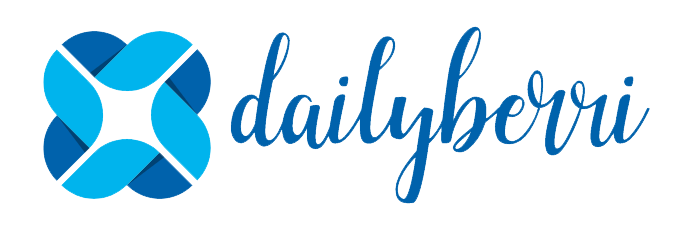Should You Pay off Debt or Save First
Are you faced with deciding whether to pay off debt or save money first? It's a problem that stems from balancing one financial priority with another.
However, striking the intelligent and effective balance between paying off debt and saving money isn't as complicated as it might seem -- but it does require careful consideration.
Let's look at the options available for both financial goals, then explore which option is best for your needs.

What to do first, save or pay off debt
There are several different strategies you can use when it comes to managing your finances. An important decision is whether to focus on paying off debt or saving first.
On the one hand, debt repayment should be prioritized because interest rates can cause even small debts to increase and pay high interest. Paying off debt frees up cash flow and reduces stress.
On the other hand, saving money can provide financial security and stability in the event of unexpected expenses such as medical bills or unemployment. Having an emergency fund and saving for the future is prudent financial planning.
Ultimately, the decision comes down to your financial situation and risk tolerance. If high-interest debt is a heavy burden, paying it off first is a good idea. If your debt is low-interest and manageable, it may make more sense to build an emergency fund and save for the future. A financial advisor can help you create a plan tailored to your income, spending, and financial goals.
With a balanced approach, you can work toward debt freedom and financial stability over time. Creating a realistic budget, cutting unnecessary expenses, and earning extra income are all strategies that can help you pay off debt and save simultaneously. What matters most is taking the first step to take control of your finances and secure a better financial future.
Whether it's better to pay off debt or save money first depends on your unique financial situation. If the payment of high-interest debt is a burden, focus on paying it off first to avoid rising interest costs. If you have low-interest debt and want to build financial security, saving money might be a more thoughtful first step.
A balanced approach to saving for the future while addressing debt is an effective strategy for most people. A financial advisor can help you develop a personalized plan to pay down debt and save based on your income, spending, and goals. With time and consistent effort, you can achieve debt freedom and a more stable financial future.
Why you should save or pay off debt
Saving money can provide financial security and stability. It allows you to build an emergency fund for unexpected expenses, save for retirement, and work toward other critical financial goals. Paying off debt can free up cash flow by reducing interest and minimum payments. It also provides peace of mind by eliminating debt balances and interest rates that can feel overwhelming.
While there are pros and cons to saving and paying off debt, a balanced approach is usually the most prudent. A financial advisor can help you develop a tailored plan to pay down debt and save to fit your income, spending, risk tolerance, and financial goals.
Priority payment
Once you've decided whether to save money or pay off debt, the next step is to prioritize your payment methods. When paying off debt, it's best to focus on the high-interest debt first, as interest rates can quickly add to balances and payments. Then work on lowering your interest debt. When saving, contribute enough to get any employer match in a retirement account such as a 401(k).
Then build an emergency fund with 3-6 months of basic living expenses before saving for other goals. Creating a realistic budget, cutting unnecessary costs, and earning extra income are all effective ways to free up more money for financial priorities. You can achieve debt freedom and financial security with time and consistent effort.

Assess your financial situation
The decision to pay off debt or save first depends mainly on your financial situation and risk tolerance. Essential factors to consider include:
lIncome and monthly cash flow. Higher-income and more available monthly cash flow means more flexibility to pay down debt and save.
lDebt type and interest rate. Focus on high-interest debt first, as interest rates can quickly add to balances.
lSavings and emergency funds. If you don't have savings or an emergency fund, it's wise to save first to build financial security.
lSavings withdrawal. Contribute enough to get a match from any employer before focusing on other financial goals.
lFinancial goals. Consider short-term and long-term goals, such as saving for a down payment or retirement.
lRisk tolerance. More risk-averse people may prefer to keep first to build stability. Those who are more tolerant of risk may tackle high-interest debt first.
A financial advisor can help you assess your overall financial situation and develop a tailored plan to pay down debt and save based on your income, expenses, risk tolerance, and goals. You can have a brighter financial future with hard work and consistent action.
Common problem
Which debts should be paid off first?
Pay off high-interest debt first, as interest rates can cause balances to rise quickly. This usually includes credit cards. Then work towards low-interest debt, such as student or personal loans.
How Much Emergency Fund Should You Have?
Financial experts usually recommend saving enough to cover 3 to 6 months of basic living expenses. This may be necessary if you lose your job or face substantial unexpected costs. The exact amount depends on your income, fees, and financial situation.
Should you pay off debt or save for retirement?
Both are essential financial goals when saving for retirement and paying off debt. Contribute enough money for any employer to match retirement accounts and then focus on high-interest debt. However, your specific circumstances and risk tolerance may affect the best approach. Meeting with a financial advisor to develop an individualized plan is a good idea.
In conclusion
The answer to deciding whether to pay off debt or save money depends on your unique financial situation. To ensure the best possible outcome, it is critical to consider all available options and develop a plan that balances both goals. With the proper planning and understanding of each goal option, you can make the best decision for yourself and your finances.











